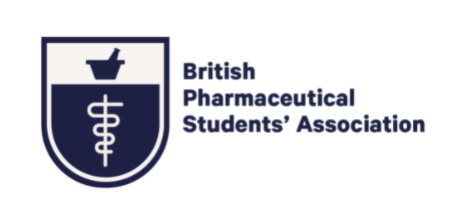Putting people at the heart of pharmacy
Why communication and teamwork is key
In any workplace, teamwork is important as it benefits the business, as well as positively impacting the working experience for staff members. Good communication is important for team morale, motivation and ensuring that the workflow runs smoothly. However, when it comes to working in a pharmacy in particular, communication within your pharmacy team is also important for the wellbeing of patients, not just the team itself.
Communication can seem like an old-fashioned skill, however it’s as important now as it ever has been. It’s essential that newly qualified and training pharmacists recognise the benefits of great communication to ensure a positive and communicative pharmacy environment.
Pharmacist and training and industry consultant Deborah Evans provides experience from her own pharmacy career, with advice for the best ways to work in a team within a pharmacy environment.
Why is communication so important in pharmacy?
Communication is important in all aspects of our lives, by why is effective communication so important in a healthcare environment?
Deborah Evans explains: “Effective communication between pharmacy team members is first and foremost essential for patient safety. Good communication fosters trust which enables a stronger dialogue between pharmacy teams and patients allowing everyone to collectively support each other and their patients.”
What is the recipe for good communication in pharmacy?
Good communication relies on both verbal and non-verbal cues and depends on a variety of factors. Deborah tells what the most important pillars are in pharmacy:
Information: “Creating a good information flow is vital. Pharmacies can be a very busy environment, with a number of individuals delivering different roles, and potentially working at different times. As such, consider the best way to ensure no information is lost or is ambiguous. This could be a central email point, a staff notice board or a morning huddle.
Don’t Underestimate It: Great communication does not happen by accident – it requires skill in rapport-building, questioning and listening, verbal and non-verbal communication. Similar to scientists, pharmacists place so much emphasis on clinical skills, but communication skills are so essential to what we do and how we lead. Underestimating its value will leave you falling short.
Values & Identity: Working in a pharmacy you may come across all walks of life where respecting and understanding differing values and identity is vital. People from different cultures may have different expectations and different standards of professional behaviours. Be open about this and communicate your values from the outset so people understand and respect them and your boundaries.
Active Listening & Understanding: Practising active listening can really help ensure communication is positive and productive.
Take time to understand your own communication and behavioural style. Have an open mind and a desire to play your part in engendering a positive working environment where everybody can perform at their best”.
How can you use communication overcome conflict?
Prevention is better than cure and so, ideally, using good communication skills in the first place will prevent a lot of conflict occurring. However, no one is perfect. So how can we overcome conflict that has already happened?
Deborah Evans explains: “A useful and very simple tool that can help resolve immediate issues uses the acronym ACAC. The approach can be used with colleagues but can also apply to patients.
A – Acknowledge what is happening and the situation, using the patient’s words where possible. You don’t have to agree with what’s been said but do hear the other person.
C – Clarify the problem/issue by asking open questions to better understand exactly what’s happened and is causing the conflict for the patient. Don’t make any assumptions. You need to see it from the other person’s perspective.
A – Answer the concerns in turn. This may be where an apology is required if you are in the wrong. Individuals often welcome an explanation of why a situation has arisen. Be as open as you can be to build trust.
C – Check and confirm that your explanation has addressed the issue, or agree how you might resolve.
Remember too that you should always offer a patient the opportunity to register a formal complaint using the NHS process and that of your company.”
How can you improve your communication skills?
When it comes to harnessing the power of communication skills, Deborah concludes: “Improving your communication skills starts with self-awareness and comes with experience but as a student start thinking about this in your course too. Being mindful now of the importance of communication and your strengths and weaknesses in this area, can support you as you graduate and become part of a working team.
“If you have recently graduated, then make use of available resources and training that can help you improve your skills in this area.”
Over the coming winter, and during an ongoing pandemic, good communication will be more important than ever for busy pharmacy teams.
For newly qualified pharmacists navigating their way through their first cold & flu season, it’s important to learn the skills needed to work as part of a team, as well as communicate well with patients.
Deborah has taken a pro-active role in supporting pharmacy teams with their business skills and has contributed to a brand new ‘Business Skills for Pharmacists’ module from the No.1 brand sold through UK Pharmacy[1], Care.
Business Skills for Pharmacists is accessible via Care’s app: Ultimate Guide To Care, and contains tips on topics such as leadership skills, time management, patient communication, stock management and financial processes.
[1] For verification please write to Thornton & Ross Ltd, HD7 5QH



